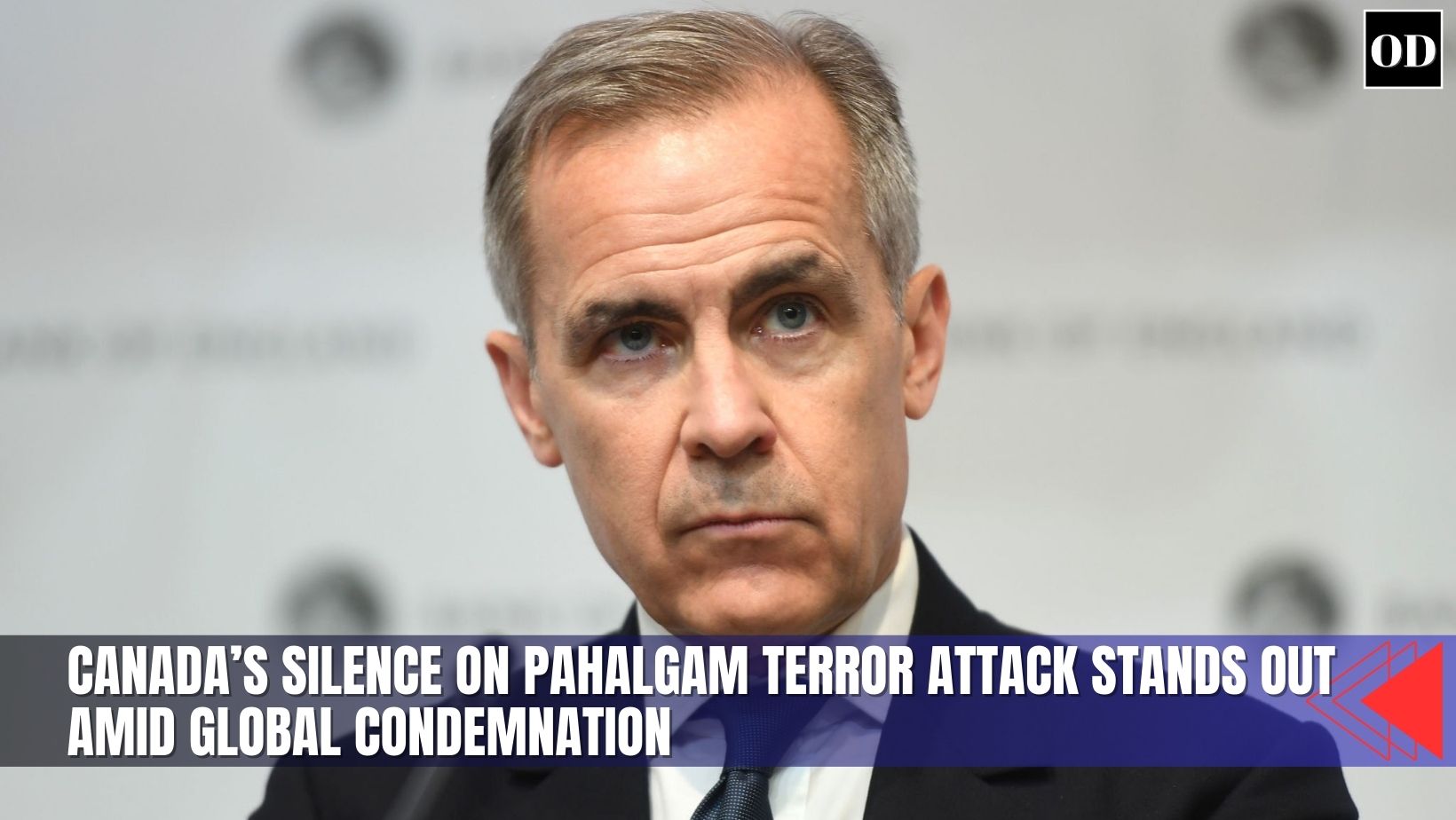
Canada’s Silence on Pahalgam Terror Attack Stands Out Amid Global Condemnation
A Global Outcry, Yet Canada Remains Quiet
On April 22, 2025, a horrific terrorist attack in the Baisaran meadow near Pahalgam, Jammu and Kashmir, claimed 28 lives, mostly tourists enjoying the serene beauty of a place dubbed “Mini Switzerland.” The world has responded with swift condemnation, from nations like the United States, Russia, and Israel to unexpected voices like the Taliban and Iran. Even India’s geopolitical rivals, including Turkey, China, and Pakistan, have denounced the massacre. Yet, Canada, a G7 nation known for its vocal stance on human rights, has issued no official statement, raising eyebrows and sparking debate about its diplomatic priorities.
The Attack That Shocked Kashmir
The assault, carried out by a group of terrorists emerging from dense forests, targeted civilians—men picnicking, eating at eateries, or taking pony rides with their families. The Resistance Front (TRF), a proxy of the Pakistan-based Lashkar-e-Taiba, claimed responsibility, citing anger over alleged “demographic changes” in Kashmir. Indian security agencies have identified three suspected Pakistani attackers—Asif Fauji, Suleman Shah, and Abu Talha—releasing sketches based on survivors’ accounts. The attack, one of the deadliest on civilians in Kashmir since 2000, has shattered the region’s tourism-driven narrative of peace, leaving families grieving and survivors traumatized.
Global Leaders Respond, Canada’s Government Stays Silent
World leaders have united in condemning the attack. U.S. President Donald Trump called it “deeply disturbing,” pledging full support to India in a Truth Social post: “The United States stands strong with India against Terrorism. Our hearts are with you all!” He followed up with a call to Prime Minister Narendra Modi, reinforcing U.S. solidarity. Nepal’s Prime Minister KP Sharma Oli, Russia’s Vladimir Putin, and Saudi Arabia’s Crown Prince Mohammed bin Salman also expressed condolences, with Oli noting the loss of a Nepali national. The United Nations, through Secretary-General Antonio Guterres, declared attacks on civilians “unacceptable under any circumstances.”
Pakistan, despite India’s accusations of supporting militancy, issued condolences via its foreign ministry, with Defense Minister Khawaja Asif denying involvement and attributing the attack to “homegrown” elements. Even the Taliban and Iran, often at odds with India, condemned the violence, highlighting the attack’s global resonance.
In contrast, Canada’s Liberal government, led by Prime Minister Justin Trudeau, has remained conspicuously silent. This absence of an official statement stands out, especially given Canada’s history of commenting on international incidents and its G7 peers—France, Germany, Italy, Japan, the UK, and the U.S.—all condemning the attack.
Canada’s Opposition Steps In
I condemn in the strongest terms the horrific terrorist attack in Jammu and Kashmir that took the lives of innocent civilians, including tourists and families.
— Pierre Poilievre (@PierrePoilievre) April 23, 2025
Our hearts are with the victims, their loved ones, and all those affected. Canada stands united against terror in all…
While the Canadian government has not spoken, opposition leader Pierre Poilievre filled the void with a strong statement on X: “I condemn in the strongest terms the horrific terrorist attack in Jammu and Kashmir that took the lives of innocent civilians, including tourists and families. Our hearts are with the victims, their loved ones, and all those affected. Canada stands united against terror in all its forms.” Poilievre’s words align with Canada’s traditional stance against terrorism, but they underscore the government’s silence, fueling speculation about underlying tensions.
A Strained India-Canada Relationship
Canada’s lack of an official response comes against a backdrop of frosty diplomatic ties with India. Recent years have seen tensions over Canada’s handling of Khalistani separatist activities, which India views as support for anti-India elements. The 2023 controversy surrounding Canada’s allegations of Indian involvement in the killing of Hardeep Singh Nijjar, a Khalistani activist, further strained relations, with India dismissing the claims as baseless. Posts on X suggest Canada’s silence may be tied to domestic political pressures, including reliance on Sikh community votes, or a cautious approach to avoid entangling itself in the India-Pakistan-Kashmir dispute. However, these sentiments remain speculative and inconclusive without official confirmation.
Questions Raised by Canada’s Silence
The absence of a statement from Ottawa has not gone unnoticed. On X, users have criticized Canada’s foreign policy, with some calling it “shameful” and questioning its commitment to combating terrorism. One post noted, “Even the Taliban has spoken out, but Canada, the supposed torchbearer of a rules-based order, hasn’t uttered a word officially.” Others suggest Canada’s silence reflects strategic restraint, possibly to avoid complicating its delicate balancing act between domestic politics and international relations. These views, while vocal, lack verified evidence and highlight the need for an official Canadian response to clarify its stance.
A Call for Solidarity
As India grapples with the aftermath—tightening security, launching manhunts, and supporting grieving families—the global community’s near-universal condemnation underscores the attack’s brutality. Canada’s silence risks being seen as an outlier, potentially undermining its reputation as a leader in human rights and counterterrorism. With survivors like the widow of Lieutenant Vinay Narwal, who saluted her husband’s coffin, and families like the Gunbotes mourning loved ones, the world watches for Canada to join the chorus of solidarity. Whether Ottawa’s reticence is a diplomatic misstep or a calculated pause, a statement could bridge the gap and reaffirm Canada’s shared values with India and the international community.



Average Rating